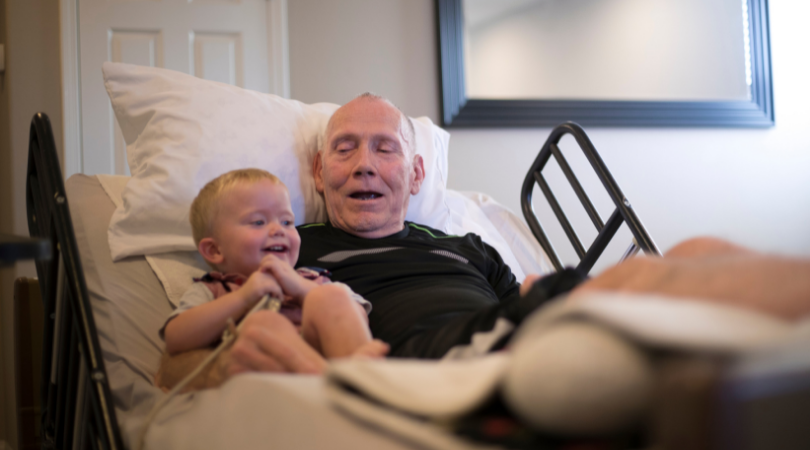Understanding the Hospice Plan of Care

If you meet two patients diagnosed with the same terminal illness, you might think that their hospice plan of care would be very similar. But that is not the case.
Each person who begins hospice care is a unique individual with different ideas, support, preferences, and goals. Therefore, each patient needs a unique hospice plan of care to address their specific needs.
From the moment a nurse from Crossroads Hospice & Palliative Care meets with a patient and their family, they begin to develop that hospice care plan in collaboration with the patient and the family. As staff from other disciplines visit the patient, they add to that plan.
Every two weeks, the patient’s care team, consisting of a medical director, nurses, aides, a social worker, chaplain, volunteer manager, and bereavement coordinator, meet to discuss the plan of care and any adjustments that need to be made to it.

What is included in a hospice care plan?
The hospice plan of care goes beyond a list of medications or a copy of the patient’s advance directives. Instead, it is a comprehensive and always-evolving plan that covers everything that is important to the patient’s physical, mental, emotional, and spiritual health.
The hospice plan of care will include medication and treatment preferences, changes in their condition, the number of visits currently required for each discipline, information on family support and any family concerns, additional support needed, recommendations for emotional and spiritual health, if the patient would like volunteer visits, and funeral arrangements if they have been made. It can also include the things that are most important to the patient whether that’s being able to attend a grandchild’s graduation, seeing a beloved pet each day or sipping the occasional glass of sherry.

Providing Patient-Centered Care
The hospice plan of care allows our team to ensure each patient is able to achieve the highest quality of life and that their family is receiving all the support they need.
Rather than simply reading notes in a chart, the interdisciplinary team discusses each patient with each team member providing an update on the patient and noting any changes:
Nurses will provide an update on the patient’s symptoms and pain management and any changes to their ability to perform the activities of daily living (ADLs).
Hospice aides address personal care needs including bathing and dressing and any changes that may be needed to create a more comfortable and safe home environment.
Social workers act as advocates for the patients and families, assisting with addressing their psychosocial, emotional, mental, and financial needs and connecting them with resources in the community for added support.
Chaplains speak to the spiritual needs of the patient and address any rules or rituals of the patient’s religious background that must be observed.
Volunteer managers will provide updates on whether a volunteer has been requested and updates on the support volunteers are providing to the patient and their family.
Bereavement coordinators provide updates on any anticipatory grief concerns and learn more about the patient and their family to plan how they will continue to support the family after the patient’s death.
The medical director oversees and consults on the patient’s treatment plan and ensures that the care plan is being followed.
Each team member brings their own unique perspective on the patient based on their personal interactions with them and their training and experience, ensuring that the patient receives the unique, whole-patient care they deserve.
Crossroads is committed to meeting the unique needs of each individual patient. To learn more about our services, please call 1-888-564-3405.
If you found this information helpful, please share it with your network and community.
Copyright © 2022 Crossroads Hospice. All rights reserved.




